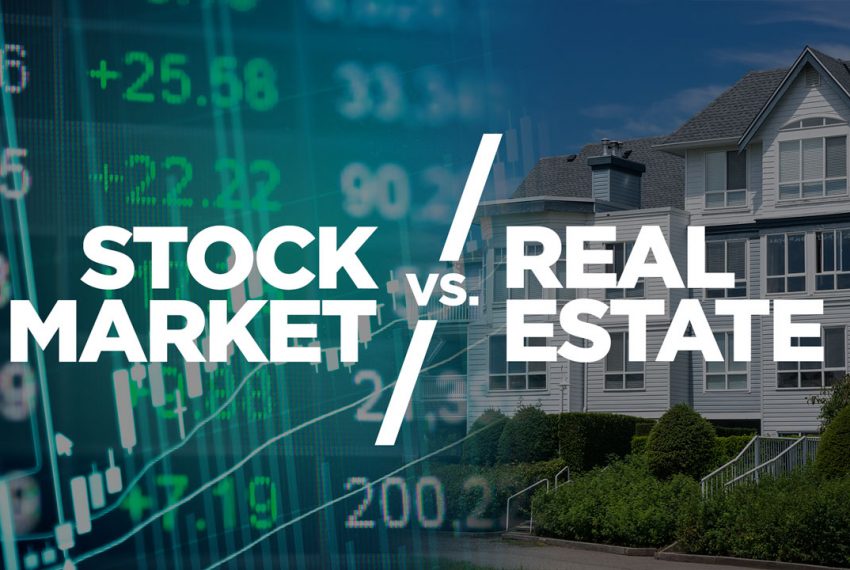Real Estate vs. Stock Market: Where Should You Invest?
Choosing between investing in real estate or the stock market is one of the most common dilemmas faced by both new and experienced investors. Each option offers unique benefits and risks, and the best choice depends on your financial goals, risk tolerance, and investment style.
This article breaks down the pros and cons of both real estate and stock market investing, compares key factors, and helps you decide where to put your money.
1. Overview: Real Estate vs. Stock Market
| Factor | Real Estate | Stock Market |
|---|---|---|
| Ownership Type | Physical property | Shares in companies |
| Liquidity | Low – takes time to sell | High – can sell instantly |
| Initial Investment | High (down payments, fees) | Low (can start with a few dollars) |
| Risk Level | Moderate (market + property risk) | Varies (market volatility) |
| Income Potential | Rental income + appreciation | Dividends + capital gains |
| Time Commitment | High – managing property | Low – mostly passive |
2. Real Estate Investing
✅ Pros:
- Tangible asset you can use or rent
- Steady cash flow from rental income
- Leverage to amplify returns
- Tax advantages (depreciation, deductions)
- Appreciation over time
❌ Cons:
- High entry costs (down payments, repairs)
- Low liquidity – hard to exit quickly
- Requires active property management
- Potential market downturns
3. Stock Market Investing
✅ Pros:
- Low barrier to entry
- Highly liquid – easy to buy/sell
- Access to global markets and industries
- Passive income through dividends
- Low management required
❌ Cons:
- Market volatility can affect returns
- Emotion-driven decisions may lead to losses
- Limited control over companies
- Taxes on gains and dividends
4. Key Comparison Areas
- Returns: Both real estate and stocks can deliver ~8–12% annually over time.
- Liquidity: Stocks win for being instantly tradable.
- Time Commitment: Real estate demands more work; stocks are more passive.
- Diversification: Easier and cheaper with stocks via ETFs or index funds.
- Leverage: Real estate allows for significant leverage using mortgages.
5. Which Is Better for You?
- Need passive income? Both can work – real estate offers rent; stocks offer dividends.
- Starting capital? Stocks are more accessible for beginners.
- Comfort with volatility? Real estate is less reactive; stocks change daily.
- Time available? Real estate is hands-on unless outsourced; stocks can be automated.
6. Combining Both for Diversification
Many successful investors use both:
- Use stocks to grow capital and reinvest dividends.
- Use real estate for cash flow and long-term appreciation.
- Rebalance your portfolio over time based on market conditions.
7. Alternatives to Direct Real Estate
- REITs: Real estate exposure without ownership hassles.
- Real Estate ETFs: Diversified real estate holdings.
- Crowdfunding Platforms: Invest in property with as little as $500.
8. Final Thoughts
There is no one-size-fits-all answer. The best investment depends on your:
- Financial goals
- Risk tolerance
- Available capital
- Time commitment
✅ Choose real estate if you want leverage, control, and steady cash flow.
✅ Choose stocks if you want liquidity, ease of entry, and passive investing.
Or better yet – diversify and do both to balance risk and return.


